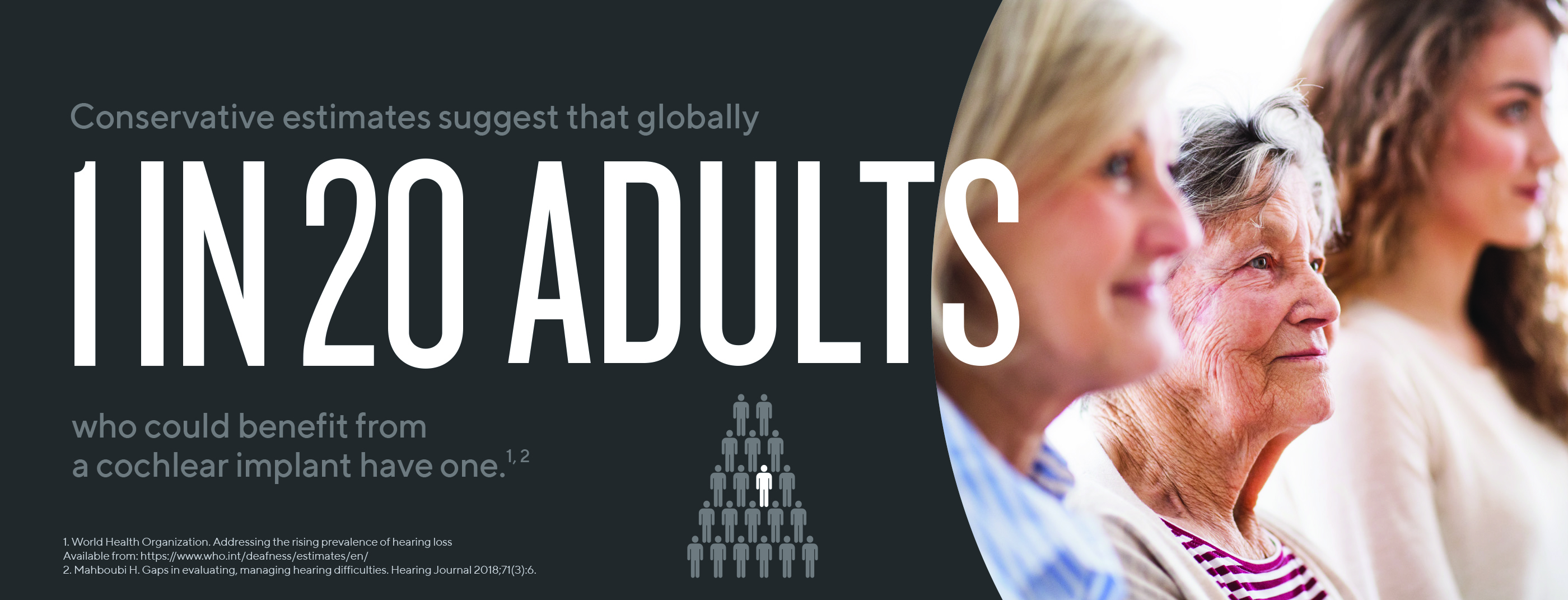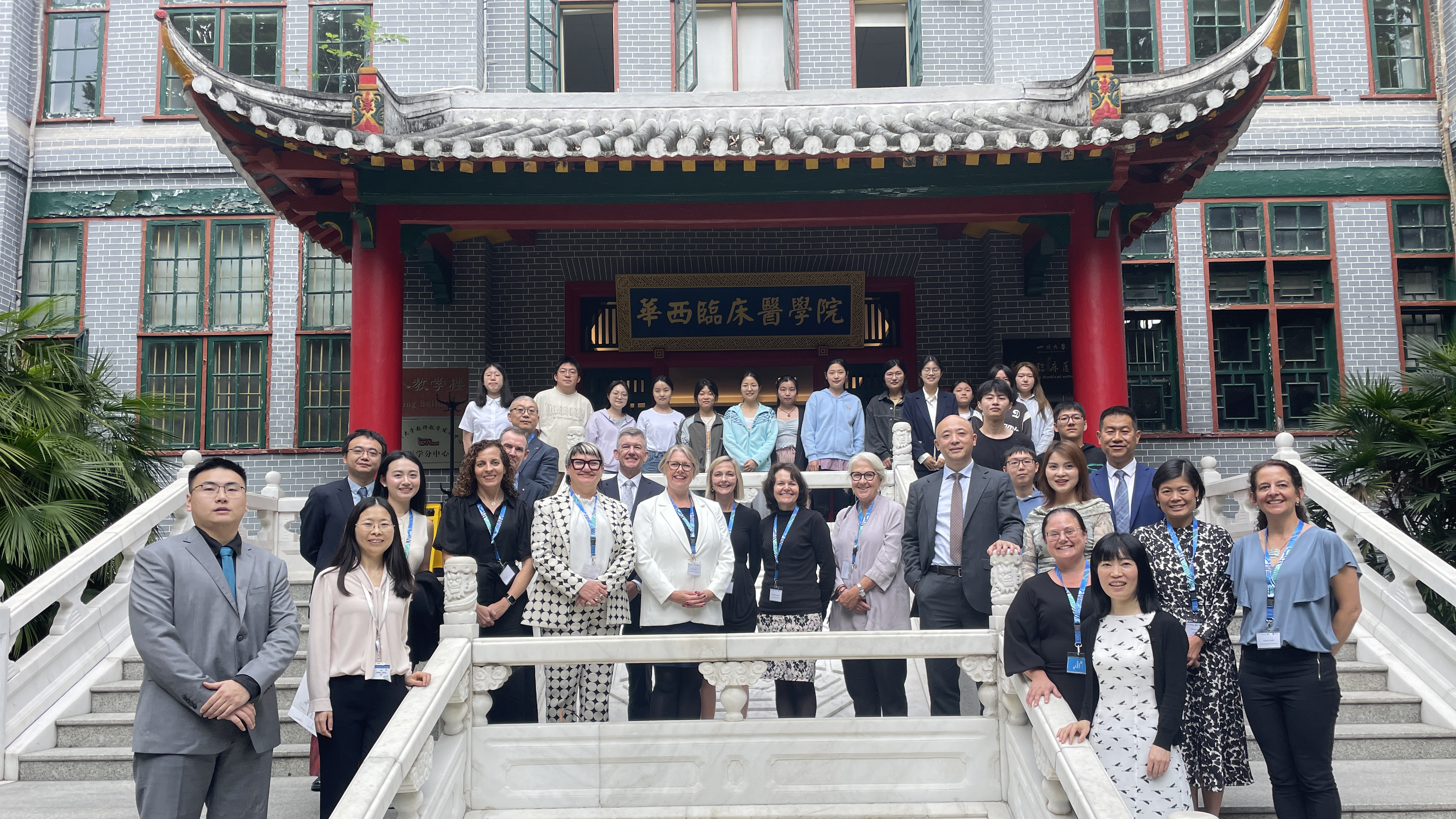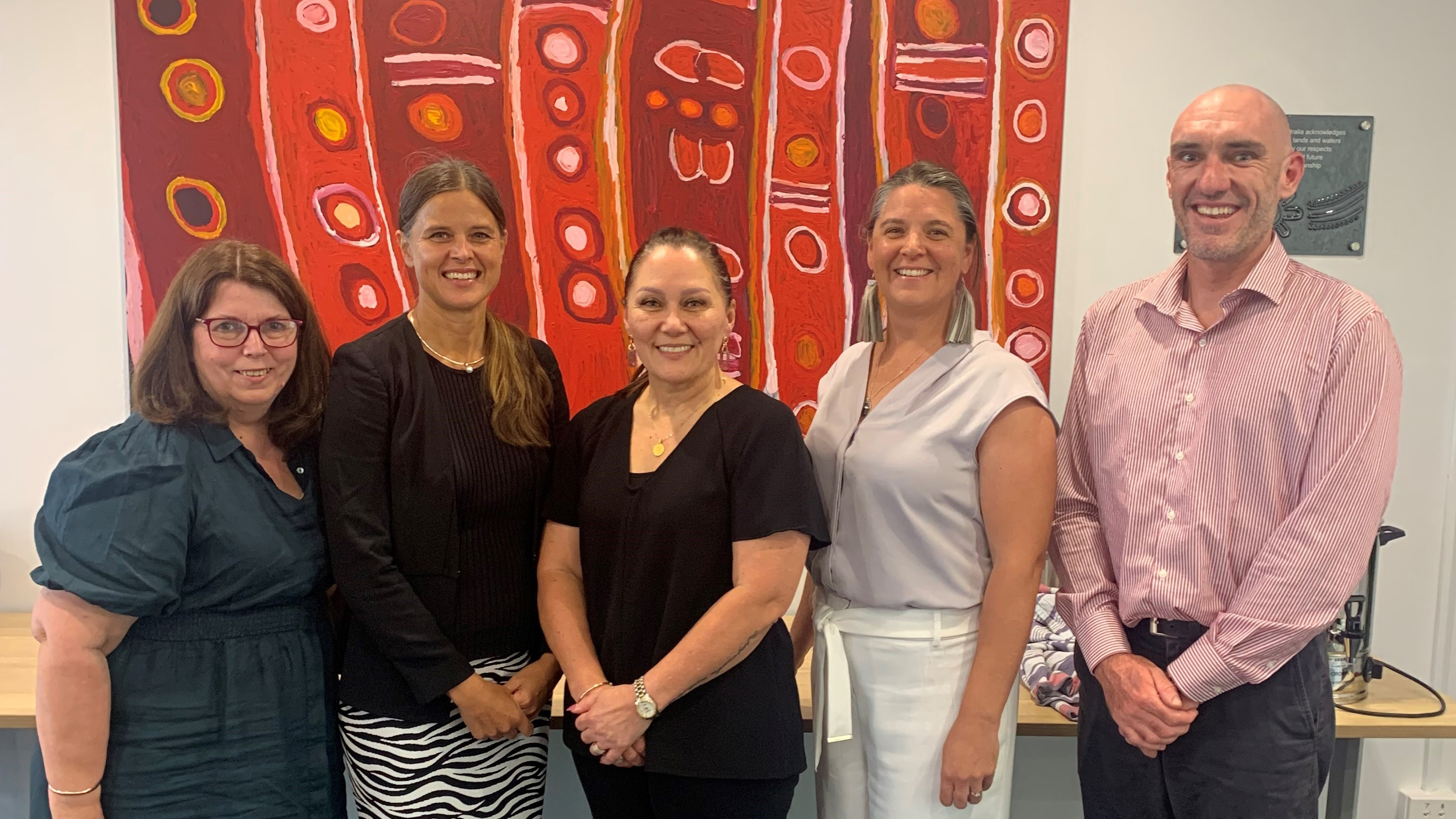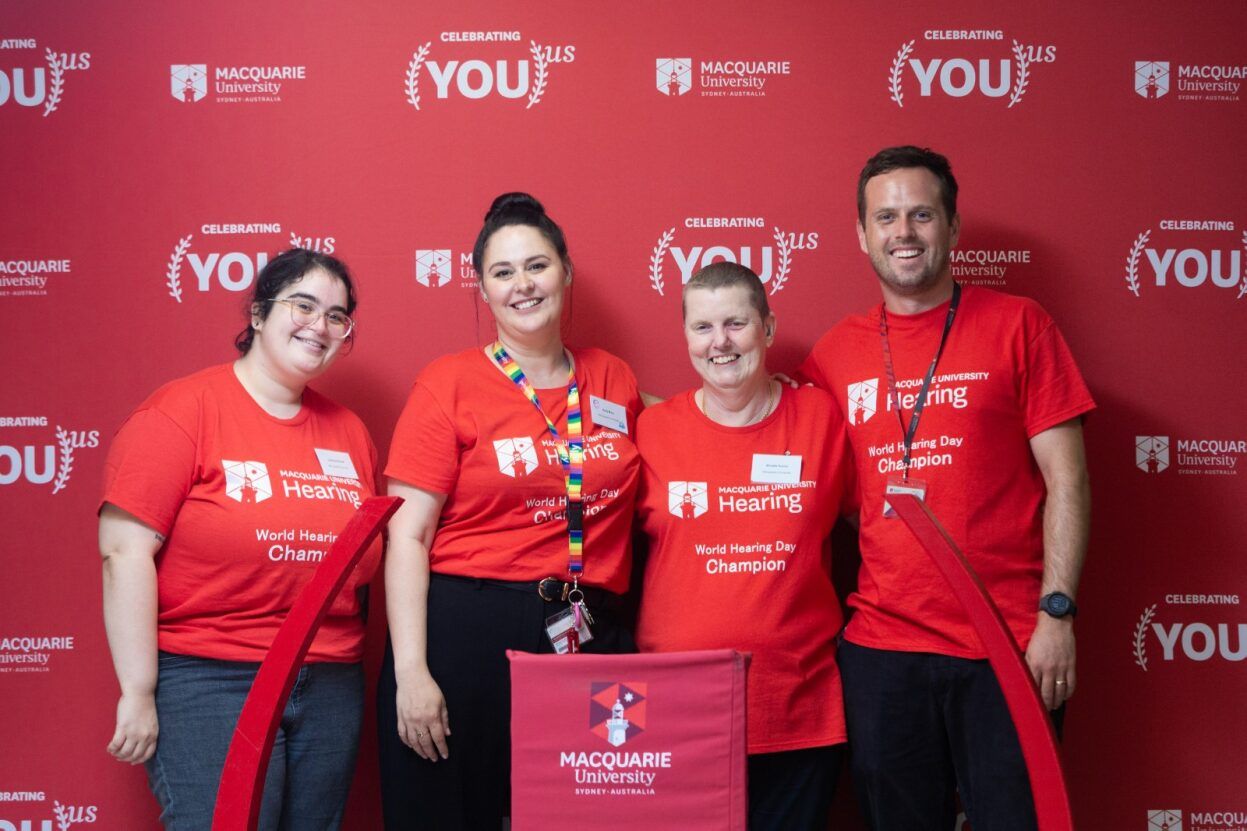
- World-first consensus published in JAMA Otolaryngology recommends ‘minimum international standard of care for cochlear implantation’, including diagnosis, referral, treatment and aftercare for adults living with severe to profound sensorineural hearing loss[1]
- Landmark consensus provides optimism people in Australia living with severe to profound hearing loss and clear guidance for hearing health professionals
- The consensus reinforces the need for heightened awareness of cochlear implants and timely referrals from Australian healthcare professionals
Australia – Australian experts have contributed to the first ever global consensus on the use of cochlear implants for the management of adults living with hearing loss, which was published in JAMA Otolaryngology. The paper was authored by a new panel, including 31 hearing experts from surgical and audiology backgrounds, and seven representatives from patient and professional societies representing more than 13 countries including Australia.
According to Professor Robert Briggs, Medical Director Cochlear Implant programme at The Royal Victorian Eye and Ear Hospital and a co-author of the paper, the consensus is a major landmark in the treatment of hearing loss.
“This is the first international agreement on the best way to diagnose and treat severe to profound hearing loss in adults,” Professor Briggs said. “This consensus paper provides a framework for countries around the world, including Australia, to optimise care for adults and reinforces the importance of health professionals referring people with severe to profound hearing loss for a cochlear implant assessment.”
The consensus paper included 20 statements covering seven categories for adults with severe, profound, or moderate sloping to profound hearing loss in both ears. Each statement was agreed upon by the panel members following consultation with a Consumer and Professional Advocacy Committee (CAPAC). Categories included:
- Level of awareness of cochlear implants
- Best practice clinical pathway for diagnosis
- Best practice guidelines for surgery
- Clinical effectiveness of cochlear implants
- Factors associated with post-implantation outcomes
- The relationship between hearing loss and depression, cognition and dementia
- Cost implications of cochlear implants.
Associate Professor Catherine Birman, Medical Director at the Royal Institute of Deaf and Blind Children’s Sydney Cochlear Implant Program, spoke of the important role that audiologists, audiometrists and other health professionals play in raising the standard of care for adults with hearing loss.
“While Australia and New Zealand have a comparatively high rate of penetration for cochlear implants, it’s still lower than it should be. It’s up to surgeons, audiology experts, primary care professionals and healthcare organisations to work together to increase referrals and make these standards a reality,” said Associate Professor Birman.
Ms. Sue Walters, NSW President of the Australian cochlear implant user support group CICADA, welcomed the potential for the consensus paper to raise awareness of cochlear implants and improve referral and treatment pathways for adults living with severe to profound hearing loss.
“More Australians could benefit from life-changing hearing technology including cochlear implants. I’ve so often had recipients say to me “I wish I’d had this implant years ago!!” However, low awareness of cochlear implants among health professionals and the wider community mean that many who could benefit are not referred appropriately, or not at all. Follow-up care and support for recipients, such as auditory habilitation and instruction in the use of hearing devices and appropriate accessories is equally as important to achieve best outcomes. This international consensus by experts in the field, combined with the voices of adults living with hearing loss, will help people to achieve optimal hearing and quality of life” said Ms Walters.
In many countries, including Australia, adults do not have their hearing assessed as part of regular health check-ups. Of those who receive hearing checks and are diagnosed with severe to profound hearing loss*, few are referred to a hearing specialist to examine whether an implantable hearing device could be the most beneficial treatment option.
While cochlear implants are an effective medical treatment for many adults living with severe to profound sensorineural hearing loss, just 10% – 12% of Australian adults who could benefit from a cochlear implant have one[2].
Professor Briggs concluded, “This consensus paper could be a significant milestone for the hearing loss community locally and globally. It has laid the groundwork for surgeons, audiologists, primary care professionals and healthcare organisations to work together to make these standards a reality”.
To view the consensus paper, including the full methodology and consensus statements, click here: www.adulthearing.com
About the consensus process1
The consensus process was initiated by a systematic review to identify relevant studies in the subject area. These were used to inform the development of evidence-based draft consensus statements. The draft statements then entered the Delphi voting process, which involved three anonymous voting rounds.
All members of the steering committee and the Delphi consensus panel, except the Chair, were able to vote in the consensus process. Voting on the draft consensus statements took place over three rounds. At each voting round, the statements were voted on anonymously using an online questionnaire. Consensus was defined as agreement by a least 75 percent of respondents. During this process, all panel members had access to a report of the evidence from a systematic literature review, including the results of the quality assessment of included studies.
About the authors
The Delphi consensus process on unilateral cochlear implantation in adults with bilateral severe, profound, or moderate sloping to profound sensorineural hearing loss was guided by a non-voting Chair, Dr Craig Buchman, Head of Otolaryngology – Head & Neck Surgery, Washington University School of Medicine, St Louis, U.S. The Chair was supported by four steering committee members who were able to vote: Professor René Gifford, Vanderbilt University, Nashville, U.S.; Dr David Haynes, Vanderbilt University, Nashville, U.S.; Professor Thomas Lenarz, Medical University of Hannover, Germany and Professor Gerard O’Donoghue, University of Nottingham, UK.
The Delphi panel comprised an additional 26 experts in the field of cochlear implant use, including audiologists and ear, nose and throat specialists from across 13 countries.
In addition, a Consumer and Professional Advocacy Committee (CAPAC) of international cochlear implant user and professional advocacy organisations was involved in the development of the consensus statements.
*Hearing loss severe enough to have great difficulty hearing and taking part in conversations in noisy environments.
The Delphi process and medical writing have received funding support from Advanced Bionics, Cochlear Ltd, Med-El and Oticon Medical. The funding organisations did not contribute to the design, facilitation or content of the Delphi consensus process.
[1] Buchman CA et al. JAMA Oto 2020 ePub ahead of Print.
[2]Cohen SM, Labadie RF, and Haynes DS. Primary care approach to hearing loss: the hidden disability. Ear Nose Throat J 2005;84:26.








